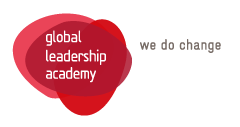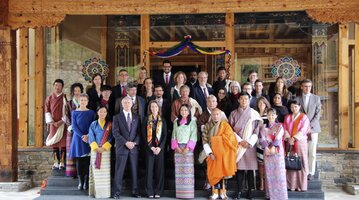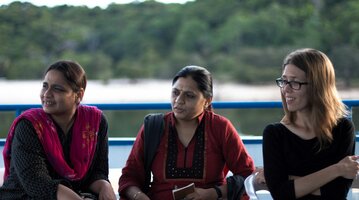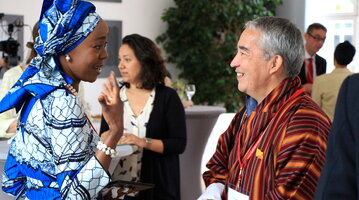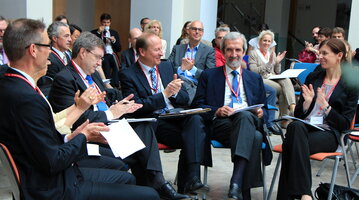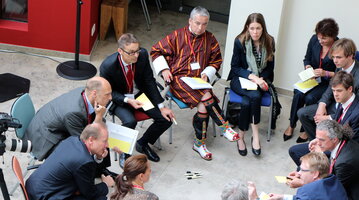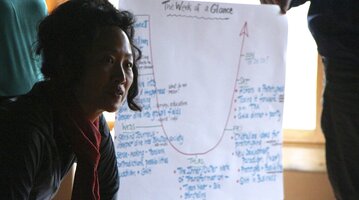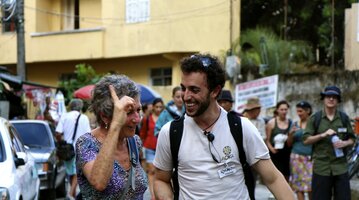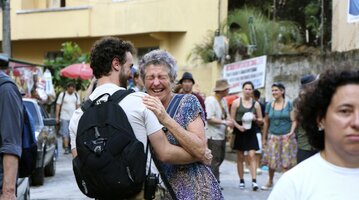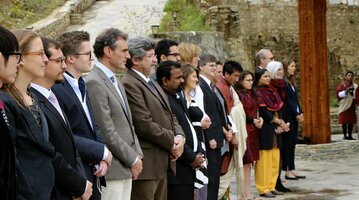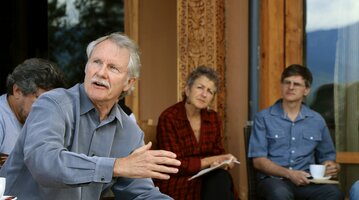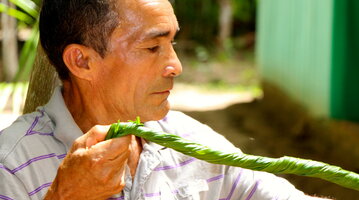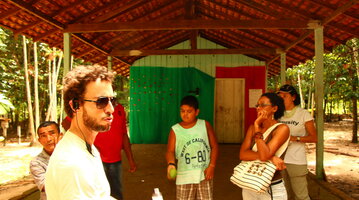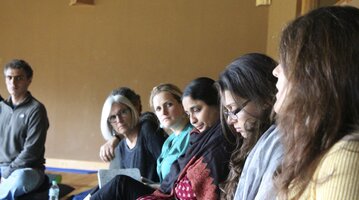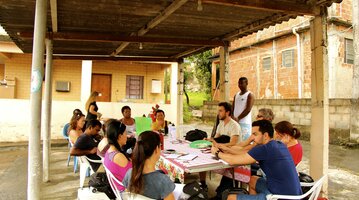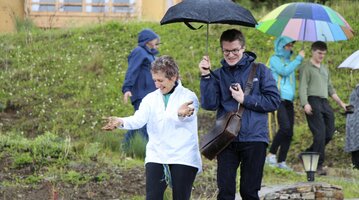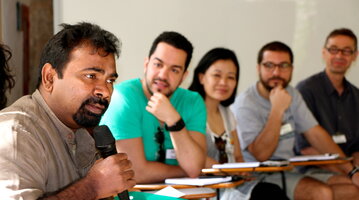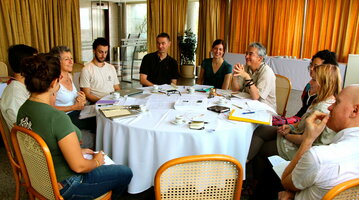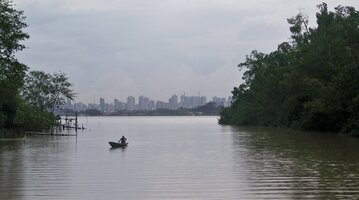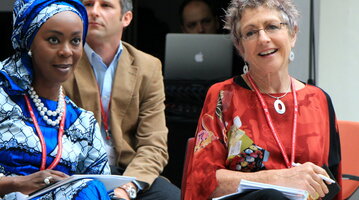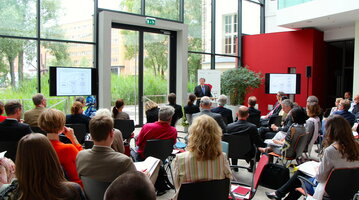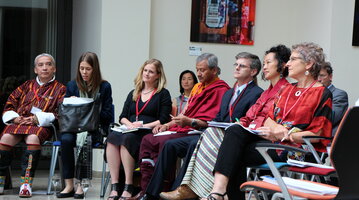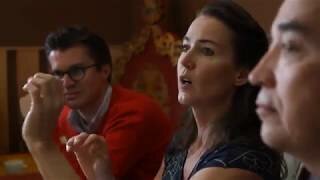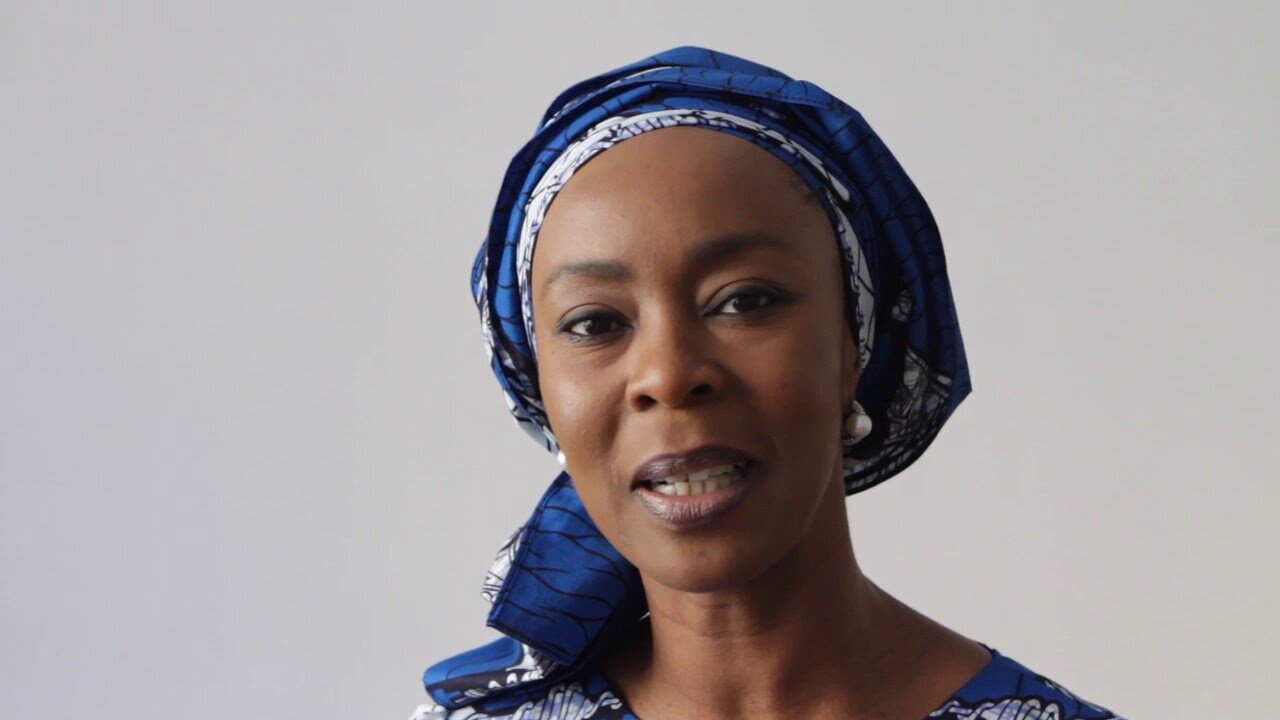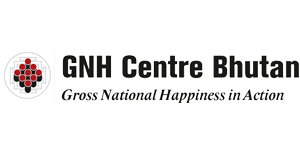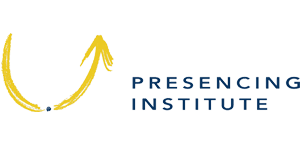Global Wellbeing and GNH Lab
Innovating Beyond GDP
Our current mainstream economic paradigm is based on the assumptions that limitless growth on a finite planet is possible, and that the material consumption that drives such growth promotes sustainable happiness and wellbeing. The urgent crises facing both our environmental and social systems though are evidence of our need for a profoundly different paradigm.
A growing number of eminent economists, policy makers and government leaders are pointing to the role that metrics such as Gross Domestic Product (GDP) have played in driving our current economies and societal value systems. Broadening what is measured and prioritized to include dimensions beyond GDP could provide a critical opportunity to reorient our global community towards addressing current crises while fostering greater wellbeing and sustainability. Yet, despite many approaches and methodologies for more sophisticated and accurate measures of societal progress and wellbeing, the actual impact on governmental policies and business strategies has been limited. Even if a government or business were to adopt wellbeing and sustainability principles, without a strong shift in mind-set and consciousness this would not have a deep impact. While a number of promising initiatives are emerging around the globe, little collective momentum has yet been generated.
The Global Wellbeing GNH Lab is a collaborative exploration of innovative ways that enable a shift of the global economy from “ego”- centric to “eco”-focused development.
Dates and Locations
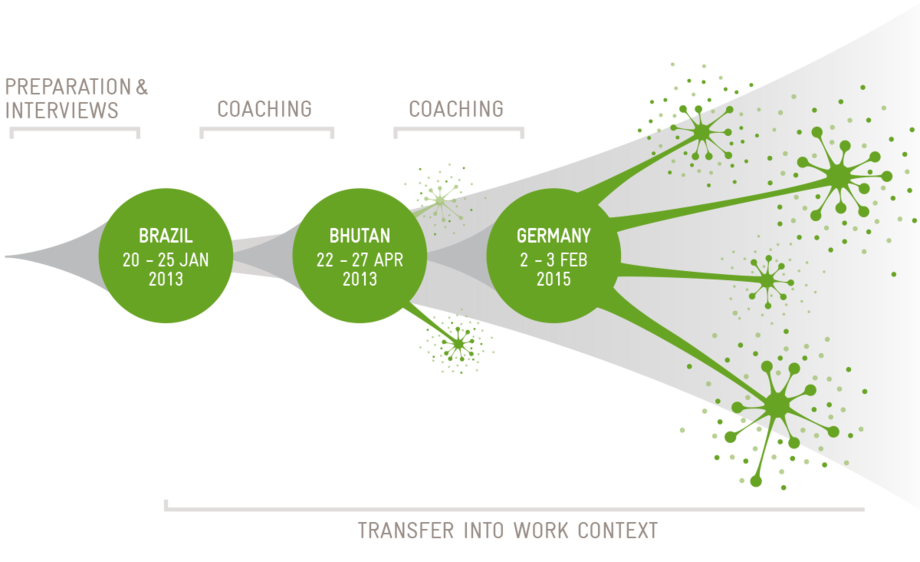
“Many of us come from organisations that might be described as technocratic, or policy, or research, kind of top down, ‘we just fix the numbers and the world will be better’. Something I’ve begun to realize through the Lab much more so than before is that inner transformation is really the ground of societal transformation. Without that, nothing will stick. And arguably without that, nothing is possible.”
Lew Daly, Senior Fellow and Project Director at Demos
25
Participants
The 25 leaders and change agents (56 % women, 44 % men) were politicians, policy analysts, researchers, directors and leaders from organizations such as OECD, Oxfam, Eileen Fisher Inc., and Natura Brazil.
8
Countries
India, Brazil, USA, China, Germany, Bhutan, Sri Lanka, the United Kingdom
LAB IMPRESSIONS
The Process
The Lab brings together 25 key leaders and change agents from a relevant range of professions and sectors – politicians, policy analysts, researchers, business leaders, founders, and CEOs from NGOs. The participants (56 % women, 44 % men) come from India, Brazil, USA, China, Germany, Bhutan, Sri Lanka, and the United Kingdom and organizations such as OECD, Oxfam, Eileen Fisher Inc., and Natura Brazil.
Any economic activity aims at fulfilling the needs of society, but the Lab aims to dive deeper into the question of what makes for human and environmental wellbeing, and what conditions are needed to increase wellbeing. The face-to face encounters took place in Brazil (20 – 25 January 2013) and Bhutan (22 – 27 April 2013) and Germany (2 – 3 February 2015). The meeting in Berlin was also the start of the Global Wellbeing Lab 2.0, convening the cohorts of both Labs. Additionally, many of the Lab participants were part of a Global Wellbeing Forum in Berlin (5 July 2013).
The Lab is an action-learning platform, co-created by the GIZ Global Leadership Academy (Germany), the Presencing Institute (Cambridge, MA), and the Gross National Happiness Centre (Bhutan) and designed on the basis of Theory U an innovation process that individuals and groups can use to suspend habitual ways of paying attention, access deeper sources of knowing, and explore the future they want to create through rapid-cycle prototyping. The first Lab meeting in Brazil enabled participants to get to know each other, develop trust and share visions for more inclusive and sustainable economies and societies. It included learning journeys to the favelas of Rio and solo nature time in the Amazon forest to understand the economic forces that are affecting quality of life for people locally.
During the second meeting of the Lab in Bhutan at the end of April 2013, initial experiences were collated and a greater emphasis was placed on mutual dialogue and exchange. Prototyping was at the forefront and all participants engaged with this in and after Bhutan, leading to the development of 5 overarching change projects at this stage. Initial project ideas were presented at the Global Wellbeing Forum in Berlin in July 2013, where they were developed further in cooperation with a wider circle of wellbeing experts. A final meeting in Berlin in 2015 brought together the cohorts of this first Global Wellbeing Lab and the Global Wellbeing Lab 2.0, laying the basis for a vibrant and worldwide network of change agents for Global Wellbeing.
Impact
Outcomes of the Global Wellbeing Lab and GNH Lab emerge on several levels: New organisational initiatives, spinoffs from the process of prototyping new initiatives, new directions personally and organisationally, and an ongoing influence in participants’ extended networks.
Examples of prototypes developed in the Global Wellbeing and GNH Lab
Eileen Fisher Inc., a leading innovator in women’s clothing, was inspired by the Lab to aim for 100% sustainability by 2020, and in the longer term, to transform the entire fashion industry (one of the planet’s highest-polluting industries). The company is now a triple bottom line company, setting not just financial targets, but environmental and internal/external social targets as well. They are currently in the process of strategic planning work related to these and in January 2016 received their B-Corp certification.
The idea behind this prototype was to change the way we frame and conduct the economy to a business value proposition, which builds community by better serving society and nature, and engaging the creativity and potential of all citizens. Individuals driven by their life purpose build communities based on compassion, which then transforms larger systems. The goal of the prototype was to develop processes and practices that support large numbers of business leaders and entrepreneurs. To start, this Lab prototyped transformational leadership forums with dozens of top business leaders in various countries, as well as widely accessible workshops and events for hundreds or thousands of community entrepreneurs.
The Oakland Wellbeing in Business Lab is an outcome of this prototype: watch the video
The GNH Centre’s purpose is to manifest in living practice Bhutan’s unique balanced development philosophy of Gross National Happiness (GNH), which seeks to integrate equitable and sustainable socio-economic development with environmental conservation. GNH Center indeed flourished since GWL 1 and has significantly expanded their international programme.
Our Partners
We implement all our programmes in cooperation with our internationally renowned partners with whom we share our passion for dialogue and change and our commitment to high quality standards.
